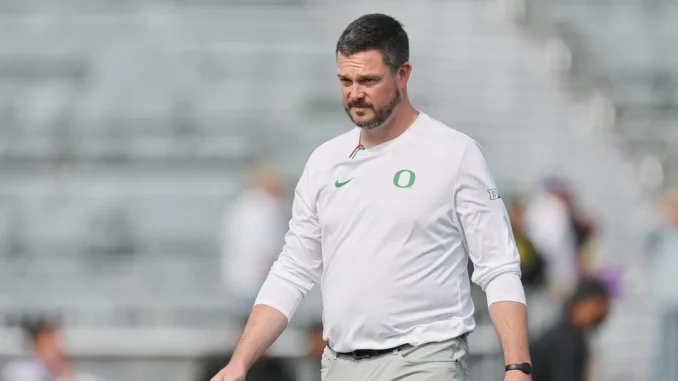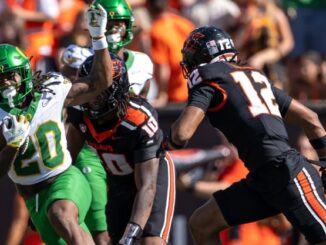
As a proud supporter of the Oregon Ducks, I find myself deeply moved and immensely proud of head coach Dan Lanning for his courageous and heartfelt speech following the team’s 34-14 victory over Northwestern on Saturday. In the wake of the tragic assassination of conservative activist and Ducks fan Charlie Kirk, Lanning’s words transcended the game, offering a powerful reflection on unity, compassion, and the urgent need for common-sense solutions to violence in America. His willingness to speak out on such a sensitive issue, knowing it could invite criticism, makes me even prouder to call him the leader of our Ducks.
Lanning’s speech resonates deeply because it draws from the strength of his team’s locker room—a place where diversity thrives, yet unity prevails. He emphasized, “You walk in that locker room, you’ve got guys of different races, guys of different backgrounds, different religions, and you got a team that loves each other.” This simple yet profound observation serves as a microcosm of what society could aspire to: a community that embraces differences while fostering love and respect. His message aligns with the idea that our shared humanity should outweigh our divisions, a sentiment that feels especially urgent in today’s polarized climate.
What stands out most is Lanning’s courage to address the complexity of issues like gun violence and mental health without reducing them to simplistic talking points. He stated, “Common sense says, ‘Oh, it’s mental health.’ Common sense says, ‘Oh, it’s guns.’ You know what? It’s both. Let’s have some common sense.” This balanced perspective acknowledges the multifaceted nature of these challenges, urging society to move beyond partisan debates and focus on protecting lives—especially those of children. His call for armed guards in schools and stricter measures to keep guns out of the hands of those struggling with mental health issues reflects a practical, grounded approach to a deeply emotional issue.
Lanning’s personal touch—sharing the pain of explaining Kirk’s death to his own children—adds authenticity to his message. As a father and a coach, he connects the tragedy to the universal desire to shield the next generation from violence and fear. His hope that neither his nor Kirk’s children would see the “disgusting” video of the incident underscores the human cost of such acts and the ripple effects they have on families and communities.
Moreover, Lanning’s willingness to speak out, despite anticipating criticism from those who might think he said too much or too little, demonstrates his integrity. His declaration, “If you disagree with me, if you hate me, if you don’t like me, just know this—I love you,” is a powerful testament to his belief in compassion over conflict. It’s a reminder that even in disagreement, we can choose empathy over enmity.
The Oregon locker room, as Lanning describes it, is a beacon of hope—a place where individuals with vastly different backgrounds unite for a common goal. This unity doesn’t erase their differences but celebrates them, creating a stronger whole. In a time when division often dominates discourse, Lanning’s call for America to learn from his team’s example is both inspiring and actionable. It challenges us to build communities where love and respect bridge our divides, just as they do for the Ducks. I couldn’t be prouder to cheer for a team led by a coach who uses his platform to advocate for unity and compassion in the face of tragedy.



